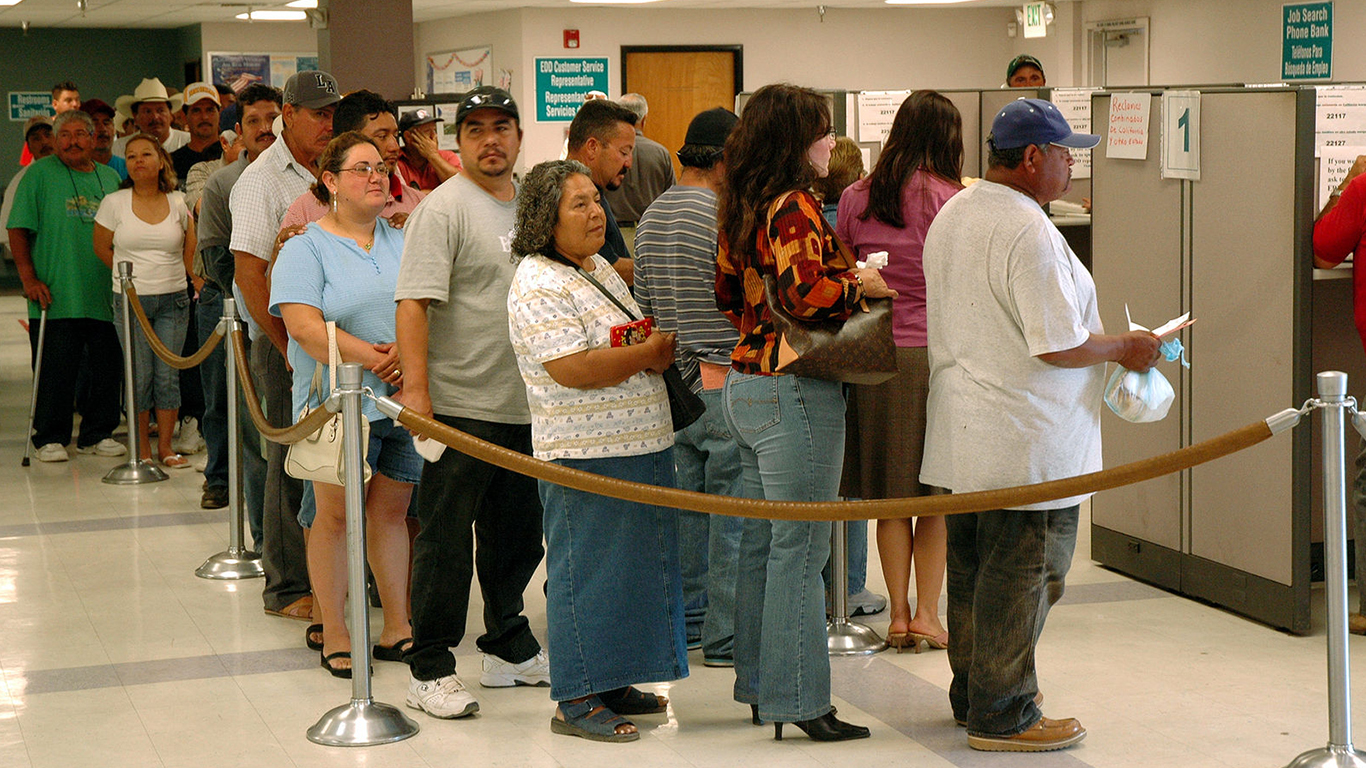Jobs
Jobs Articles
About 30 million people have filed for weekly jobless claims since the beginning of March as the recession continues to rage, including almost 4 million people who filed for unemployment benefits...
Published:
The number of weekly jobless claims in the past month has been nothing short of mind-boggling. Thursday’s top economic report was the weekly jobless from the U.S. Department of Labor, and its...
Published:
Some chief executives are paid at a stunning multiple of the people who worked at their corporations. In 2019, seven CEOs made 1,000 times more than the median pay.
Published:
The U.S. Department of Labor reported on Thursday that weekly jobless claims totaled more than 5 million last week. That was less than in the prior week but more than the forecasts.
Published:
Announced job cuts due to the COVID-19 outbreak totaled 244,000 in the first two weeks of April, an increase of 11% over job losses announced for all of March.
Published:
JPMorgan researchers forecast that GDP could drop by 40% in the second quarter. The jobless rate nationwide could rise to 20%. That means some states, with workforces in the hardest-hit industries,...
Published:
Just when you hoped or thought things could not get worse on the jobless and unemployment news, they did. Weekly jobless claims hit a whopping 6.6 million last week.
Published:
Summer jobs could fall by half year over year as the U.S. economy continues to struggle with the coronavirus outbreak.
Published:
The number of CEOs who left their jobs in March was the lowest in 20 months, according to outplacement firm Challenger, Gray & Christmas. However, the first-quarter total was the second-highest on...
Published:
Petitions have started to circulation around the country. Postal workers need to receive hazard pay, they say. Up until now, the answer has been “no.” Because of how the U.S. Postal...
Published:
The jobless rate will soar for months, as millions of workers in deeply wounded industries and in companies trying to preserve cash are pushed off the payroll.
Published:
Unemployment skyrocketed and payrolls began a major retreat in March. Sadly, the reported numbers are just the start as they did not include the most recent data.
Published:
The peak unemployment level of the Great Depression was nearly 25% in 1933. Such a jobless rate may be closer than people think.
Published:
U.S. companies announced more than 222,000 job cuts in March, a year-over-year increase of nearly 300%. The vast majority of the job losses were attributed to the outbreak of COVID-19.
Published:
The unemployment situation has gone from the best jobs market ever to an atrocious job market faster than any time in history.
Published:

Discover Our Top AI Stocks
Our expert who first called NVIDIA in 2009 is predicting 2025 will see a historic AI breakthrough.
You can follow him investing $500,000 of his own money on our top AI stocks for free.












